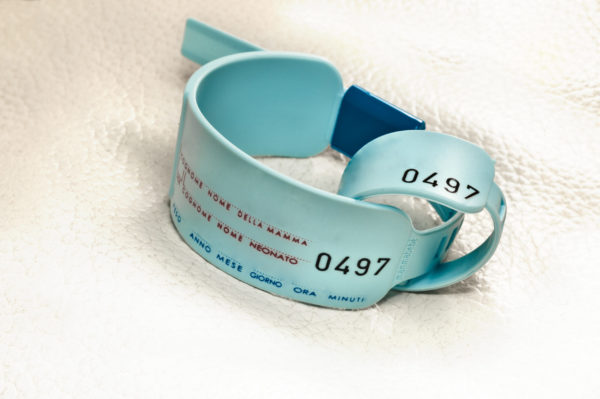There is nothing more exciting for a family than the birth of a child. Labor and delivery can still be a difficult and dangerous process, but the end result is invaluable.
What happens, however, if your physician does not follow the medically accepted standard of care, and their negligent care results in a birth injury to your child? Can you file a lawsuit against the physician or hospital to recover the unexpected costs that you incur as a result?
In most states, the answer to this question is an unequivocal yes. If the negligent actions of a child’s physician, whether prenatally, postnatally, or during birth, lead to the injury of the child, the family can bring a birth injury claim.
However, in Florida, the answer to this question is much more complicated, and like a lot of legal questions the proper answer is, “it depends.” Nonetheless, if you believe that your child suffered an injury at birth you should contact a Florida birth injury attorney promptly to discuss your unique situation.

What is NICA, and why was it created?
In the late 1980s, the Florida Legislature created the Florida Birth-Related Neurological Injury Compensation Association (widely known as NICA). NICA was created to address a perceived crisis in medical malpractice insurance costs to OB-GYNs in Florida should birth injury malpractice claims continue to rise.
NICA created a no-fault alternative to medical malpractice lawsuits for the kind of injuries that carry the highest cost and system impact and serves as a fund to provide ongoing treatment costs to families of children who suffer a particular type of injury at birth.
Creating the NICA program took certain birth injury cases out of the traditional court system and moved them into a no-fault administrative system for which affected families can apply.
This not only increased efficiency for the families in eliminating lengthy court proceedings from the process, but it also created a standard for providing expenses related to medically necessary treatment for children who would be affected for their entire lives.
Determining the value of a brain or spinal cord injury was challenging before the NICA fund was created. In many cases, the extent and cost of treatment that the child would need throughout their life could not yet be identified. As the birth injuries covered by the NICA fund are caused by the negligent actions of the child’s care provider before, during, or immediately after birth, the expenses incurred treating these injuries are not expenses that the parents planned and budgeted for prior to the child’s arrival. Providing the fund has ensured that families are not saddled with crippling expenses related to an injury that was unforeseen to them.
Who Qualifies for a NICA Claim?
Only infants with specific types of injuries may qualify for NICA compensation. Under the Florida Statutes, if your child meets ALL of the following criteria, then they may be eligible for the NICA program:
- The child must have been born in a hospital in the state of Florida
- They must have sustained a brain or spinal cord injury caused by oxygen deprivation or mechanical injury occurring in the course of labor, delivery, or resuscitation in the immediate post-delivery period
- This injury must have rendered the child permanently and substantially mentally and physically impaired
- Obstetrical services were provided by a physician who participates in the NICA program or a certified nurse-midwife practicing under a participating physician’s supervision in the course of labor, delivery, or resuscitation in the immediate post-delivery period in a hospital.
- This information is required by law to be provided by the physician prior to treatment, including providing a brochure to patients that explain the NICA program
- The fund applies to live infants weighing:
- at least 2,500 grams at birth for a single gestation
- at least 2,000 grams at birth for multiple gestations
- The child’s disability or death was not caused by genetic or congenital abnormality and was the direct result of their physician’s potentially negligent actions. For a complete list of NICA eligibility, see Florida Statutes §766.301-§766.316 for reference.
Will My Doctor Know if I Have Applied for NICA?
Yes, your doctor will be aware when you file a NICA claim. Whenever a NICA petition is filed, the Division of Administrative Hearings provides a copy in the mail to:
- The Florida Agency for Health Care Administration’s Consumer Services Unit
- The Florida Department of Financial Services
- The hospital where the child was born
- The treating physician who is named in the petition
Be aware that your treating physician will receive a copy. With a birth-related neurological injury, the hospital requires extensive documentation around the circumstances of the injury. They will likely be anticipating the filing of a NICA petition.

What Does the NICA Fund Provide?
Application of the above criteria is often complex and involves examination by medical experts, review of records, and litigation. The determination as to whether an individual infant qualifies for compensation under the NICA plan is made by an administrative law judge.
If the child is determined to have an injury that is compensable under NICA, the family may be eligible for a one-time initial payment of $250,000. NICA would also pay for all medically necessary and reasonable expenses over the child’s lifetime.
Examples of covered expenses may include medical care, co-pays, assistive equipment, physical or cognitive therapy, at-home nursing care, prescription medications, handicap modifications to the child’s home, transportation to and from medical appointments, and supplies that are medically necessary but not covered by another source, such as insurance.
NICA serves as a reimbursement plan for the families who qualify. This process provides control over the coverage of medically necessary expenses related to the child’s injuries. Any time a family seeks reimbursement from the NICA fund, they must provide proof of the medical necessity of the treatment, accompanied by the denial of coverage from other sources. Here is an example of a 2012 class action settlement involving NICA families.
As every birth injury presents unique circumstances for the family affected, the NICA fund has kept its parameters broad in order to provide appropriate individualized care for every infant. A treatment that may be considered medically necessary for one child may have no effect on another child.
As such, the NICA fund does not employ a one-size-fits-all approach. An experienced Florida personal injury attorney will be able to discuss the needs of your family with you and provide advice on the best way to ensure your family’s expenses will be covered under the NICA fund.
How Carey Leisure Carney Can Help
If the child’s injury does not meet all of the above requirements and therefore is not determined to be compensable under NICA, then the family may be able to pursue a traditional medical malpractice case against the obstetrician, midwife, and/or hospital.
Navigating the complexities of the NICA system and its intersection with the traditional tort system can be difficult. It is important for families seeking to apply for the NICA fund to seek the advice of an experienced Florida birth injury attorney who has the knowledge to preserve your NICA claim.
At Carey Leisure Carney, our attorneys have ample experience handling birth injury cases that are accepted by NICA and in the traditional medical malpractice tort system. Contact our office today to discuss your unique situation and determine how our attorneys can help.
